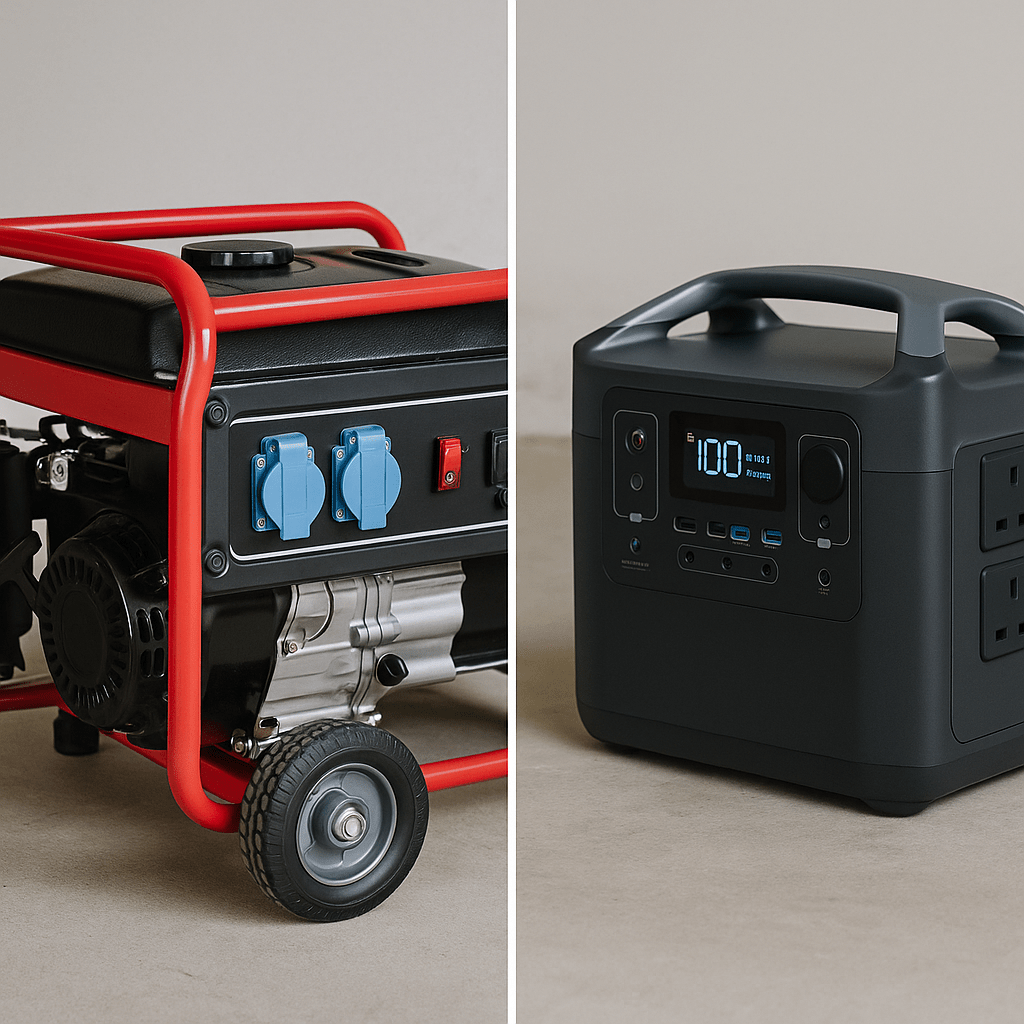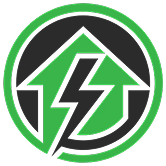
Portable Power Stations vs. Generators: Which is Best for Backup Power This Winter?
Introduction
When it comes to backup power, you have two main options: generators and portable power stations. Both can keep your essential appliances running during outages, road trips, or off-grid adventures — but they work very differently.
At Build The Power, we stock both Portable Power Stations and Generators so you can choose the best solution for your lifestyle.
What is a Generator?
A generator runs on fuel (petrol, diesel, or propane) to produce electricity. It’s great for high-power applications and long runtimes. Our Generators Collection includes portable inverter generators, standby units, and dual-fuel models for homes and businesses.
What is a Portable Power Station?
A portable power station is essentially a large rechargeable battery with built-in inverters and multiple output ports. You charge it from a wall outlet, car charger, or solar panel, then use it to power your devices. See our Portable Power Stations Collection for compact to high-capacity options.
Key Differences at a Glance
| Feature | Portable Power Station | Generator |
|---|---|---|
| Power Source | Rechargeable battery, solar compatible | Petrol, diesel, propane |
| Noise | Silent operation | Moderate to loud depending on model |
| Fumes | None, safe for indoor use | Emits fumes, outdoor use only |
| Maintenance | Minimal (just keep charged) | Regular fuel, oil, and filter maintenance |
| Runtime | Limited by battery capacity | Continuous with fuel refills |
| Portability | Lightweight, easy to store | Heavier, some models on wheels |
| Best For | Indoor use, sensitive electronics, travel | High-power tools, whole-home backup |
Pros & Cons
Portable Power Stations
Pros:
-
Silent, clean, and safe for indoor use.
-
Eco-friendly — recharge via solar panels.
-
Great for sensitive electronics (laptops, medical devices).
-
Easy to transport.
Cons:
-
Limited runtime unless recharged or expanded.
-
Higher upfront cost per watt-hour compared to generators.
Explore our Portable Power Stations Collection.
Generators
Pros:
-
High wattage output for large appliances.
-
Long runtime with fuel refills.
-
Lower cost per watt of power.
Cons:
-
Noise and fumes (outdoor use only).
-
Requires fuel, oil, and regular maintenance.
-
Not ideal for sensitive electronics without inverter technology.
Browse our Generators Collection.
Which Should You Choose?
-
For Indoor, Quiet, and Eco-Friendly Power: Choose a Portable Power Station. Perfect for flats, caravans, and camping.
-
For High Power & Longer Outages: Choose a Generator. Ideal for homes, businesses, and job sites.
-
For Hybrid Needs: Pair a small generator with a power station for flexible backup power.
Conclusion & Call to Action
Both generators and portable power stations have their place — the right choice depends on your power needs, environment, and budget.
👉 Explore now:

